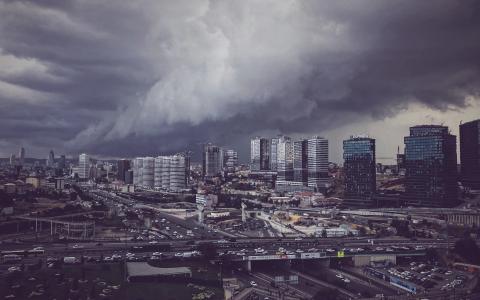
Nobody likes being an economic killjoy, particularly amid a pandemic getting everyone down. But it’s fallen to Japan’s Haruhiko Kuroda to set the globe straight on a recovery that’s just not happening.
Kuroda should know. He manages the third-biggest economy as Bank of Japan governor. In times past, top government leaders lead the economy. In modern times, leaders in Japan, the U.S., Europe and much of Asia largely abdicated responsibilities to unelected central banks to steer economic zigs and zags.
And in Kuroda’s case, that’s turned into a poisoned chalice. On his watch since 2013, Kuroda, without the possible exception of America’s Jerome Powell, did more than any monetary official in modern history to stabilize growth. He cornered the bond market, gorged on corporate debt, commandeered the stock market by hoarding exchange-traded funds and bought up every financial asset within reach.
By the end of 2018, the BOJ’s balance sheet even topped the size of Japan’s $5 trillion of annual gross domestic product. That, as they say in central-banking circles, is the point of no return. The BOJ has held rates at, or near, zero for 21 years. The odds of it normalizing rate policy in the next 20 aren’t great.
And yet, Kuroda’s team now warns even more volatile days lie ahead as Covid-19 fallout further undermines growth everywhere and unnerves markets. The BOJ cut its forecast in the year to March to a contraction of 5.5% from an earlier prediction of 4.7%. That, in and of itself, augurs poorly for the global economy.
One reason: Japan’s done a respectable job containing the coronavirus. The nation of 126 million people has just over 100,000 cases and fewer than 1,800 deaths. Yet the global fallout is slamming Japan’s growth engines. That, at a moment when Europe is experiencing second Covid-19 waves and the U.S. is veering toward 9 million infections, means the global economy can’t expect much from the Group of Seven crowd next year.
Sure, China may end 2020 growing in the 2% range. And South Korea just offered its own upside surprise. Yet any growth momentum is too shallow to make an appreciable difference in the global growth trajectory.
A second reason: more giant economies are displaying Japan-like features for comfort.
The BOJ las long led the global monetary-policy conversation. In 2001, it pioneered quantitative easing. At the time, then-BOJ leader Masaru Hayami pushed Tokyo into territories unseen since the 1930s. Western economists including Ben Bernanke studied, and critiqued, the radicalness of the strategy. By 2009, when Bernanke was running the Fed, he was taking the U.S. down the QE rabbit hole. Before long, so was the European Central Bank, the Bank of England and others.
Yet even today’s Japan is showing us the dangers of not learning from Tokyo’s past mistakes. The main one: thinking monetary easing alone could end deflation and revive healthy growth.
Sadly, former Prime Minister Shinzo Abe made this error. His “reform” strategy beginning in 2102 was hiring Kuroda to supersize BOJ asset purchases. Lots of talk about structural change, and even a few tweaks of consequence—like strengthening corporate governance. Mostly, though, just another experiment in central bank-driven “trickle-down economics.”
The failure of Abenomics to remake Japan after eight years was clear enough from how quickly the economy stumbled earlier this year. Can new Prime Minister Yoshihide Suga, on the job since Sept. 16, do better? Time will tell. As Kuroda is warning us, though, there’s not a moment to waste to revive growth.
“There remains great uncertainty over the economic and financial outlook,” says Kuroda, Tokyo’s $5 trillion man. “The BOJ will continue to carry out the existing monetary easing steps, and should it become necessary we will take additional steps without hesitation.”
The bigger problem, though, is Washington gridlock. The run-up to Tuesday’s election has distracted the White House and lawmakers from the need to stabilize and stimulate the world’s biggest economy.
Things are almost sure to get worse. If President Donald Trump is defeated, he’s apt to spend the 78 days until he leaves the White House sabotaging the economy. If Trump wins, there likely won’t be much urgency to stimulate. The negative feedback effects are sure to undermine Japan, too.
Kuroda has every reason to be worried about the year ahead. So does the rest of a global community that seems oddly hopeful better times are ahead.
This article originally appeared on Forbes.



